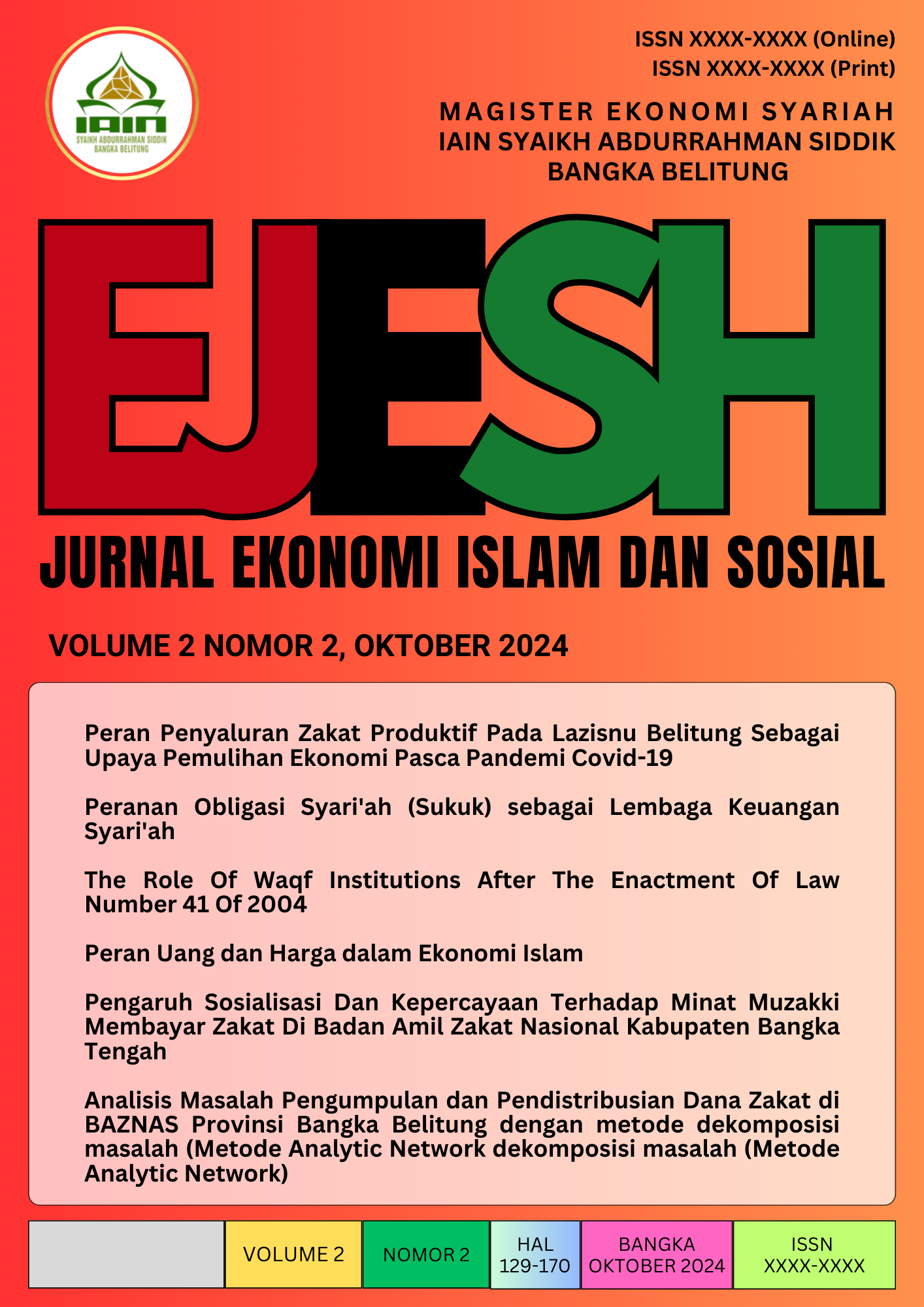Larangan MAGHRIB (Maysir, Gharar, Riba) dalam Transaksi Jual Beli Kajian Ekonomi Islam
Abstract
The prohibition of usury, gharar, and maisir is increasingly relevant for this modern era because the modern market contains many efforts to transfer risk (danger) to other parties in conventional insurance, capital markets, and various financial transactions that contain elements of gambling). Where every business venture must have a risk and must be avoided, this system was abolished by Islam so that the transaction process is maintained properly and brotherhood is maintained and does not create hostility for those who make transactions in the financial market.
This research is qualitative descriptive research. The purpose of this research is to interpret and tell data related to the situation that is currently happening, attitudes/views that occur in society, conflicts of two or more circumstances, influence on a condition, etc. In this qualitative descriptive research, researchers use a literature review to find information through books, magazines, newspapers, and other literature to form a theoretical basis. This research also examines written sources such as scientific journals, reference books, literature, encyclopedias, scientific essays, scientific papers, and other sources in written form and digital format that are relevant and related to the object being studied. The object of this research study is in the form of texts or writings that describe and explain the prohibition of Maisir, Gharar, and Riba's prohibition in buying and selling transactions in economic studies. The conclusion in this journal is that Maisir, Gharar, and Riba are things that are not allowed in Islamic law. Therefore, it is good for us as eternal students to understand and practice it in this mortal life.









.png)


